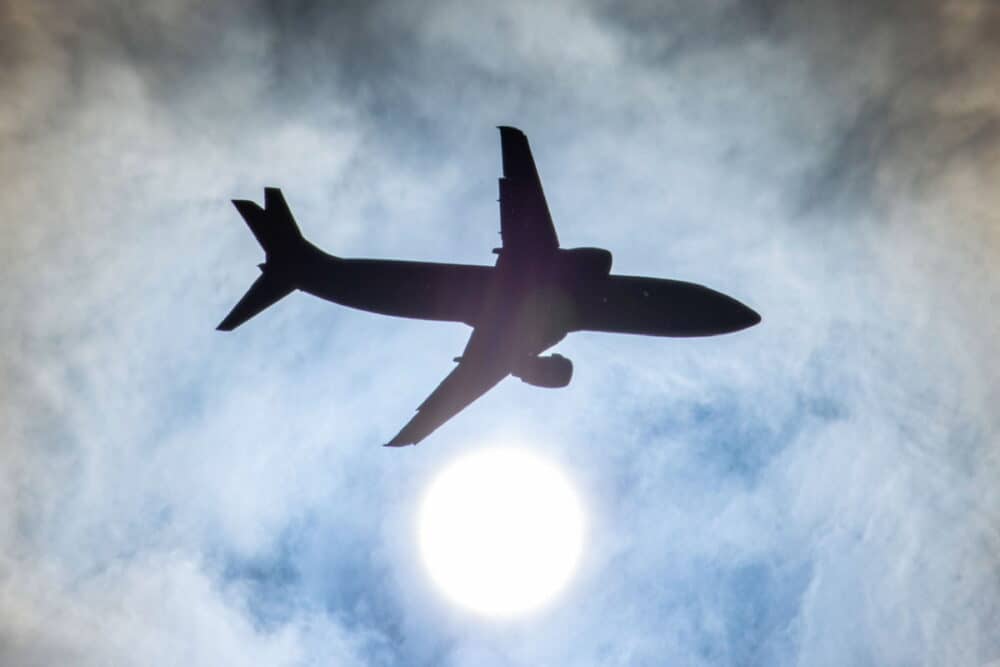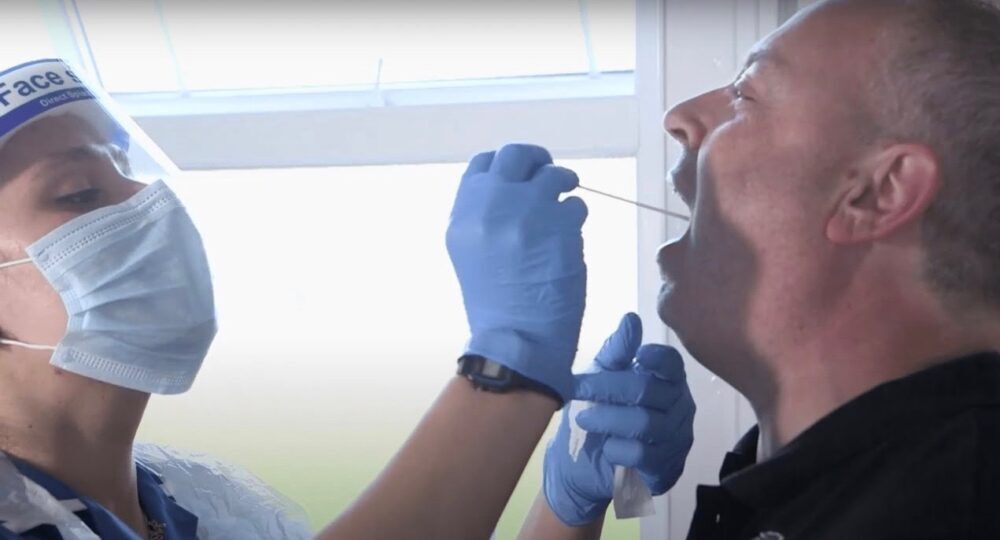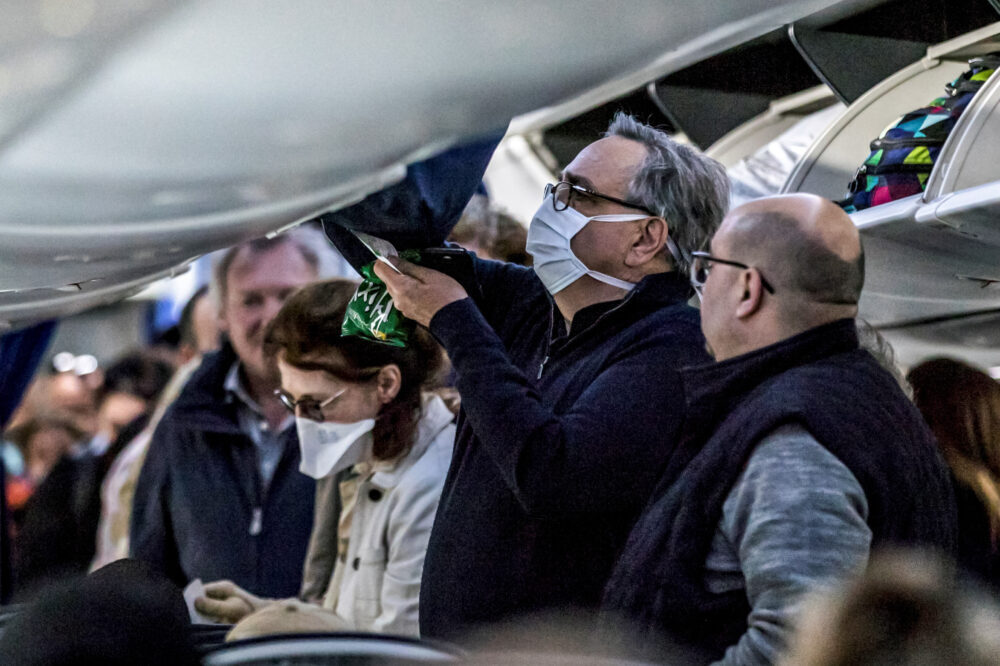How Testing Could Be The Key To Opening Up Air Travel
Coronavirus tests are becoming more prominent across the aviation industry as passengers strive to hit the skies during this restrictive period. Governments are slowly conforming to testing solutions, but the process can often be time-consuming and there are still authorities that are not completely confident with the approach.

Making the process more efficient
Polish biotech outfits Nex.D and GeneMe have been breaking ground with FRANKD. This product is an RT-LAMP test, which uses an isothermal reaction that allows for the detection of nucleic acids. Results are delivered in just 30 minutes while minimizing false positives and negatives.
Travelers needing tests to board a plane often have to wait between 24 and 48 hours to get their results back. Moreover, the price of obtaining a PCR test can cost more than an actual plane ticket. However, the market price for a FRANKD test has a market cost lower in comparison with the most utilized PCR Tests.
Breaking down the procedure
Nex.D founder Colin Brown spoke to Simple Flying about the benefits to be had with FRANKD. Ultimately, the features could enable a smoother procedure for the insurance of safe air travel.
“The FRANKD test is currently the most accurate SARS-CoV-2 test on the market. When the Scottish government conducted an analytical study of FRANKD, the results showed a sensitivity of 20 copies/ml for detection, compared to 40 copies/ml by the Becton, Dickinson & Company test, and 100-125 copies/ml for Abbott’s tests,” Brown told Simple Flying.
“GeneMe’s patented technology simplifies the entire testing procedure compared to standard laboratory-based RT-PCR tests. FRANKD is a scalable, cost-effective, on-site SARS-CoV-2 testing solution that can be seamlessly placed at companies and institutions as well as locations with high throughput, such as international borders. The innovative FRANKD testing buffer neutralises the virus once the sample is placed, making it suitable for point-of-care testing.”
Industry commitments
GeneMe provides tests for distributors who sell them locally to government and airport authorities. The institutions’ tests are currently in use in over 20 countries and are utilized by airlines such as Virgin Atlantic. Airports such as Heathrow and Prague also take on the product. Moreover, holiday resorts in nations such as Poland are implementing these tests, showing the chain of influence that the pandemic is having on the travel industry.
Even though airlines have been keen to turn to innovative testing solutions, authorities have been more pedantic. Several chief medical officers are cautious about moving from RT-PCR tests to RT-LAMP tests. However, GeneMe highlights that RT-LAMP tests are not only incredibly sensitive, they are also much more scalable. However, since this type of testing is only 15 years old and is used most commonly in veterinary services and less in hospital settings, other industries are more reluctant to commit.
Addressing challenges
More countries are requiring tests to enter. Additionally, some governments are requiring PCR tests along with airport tests as part of the passenger journey. So, a FRANKD test would fit in well with this structure. If a traveler has been tested more than once with an effective solution at different stages, then the need for a lengthy quarantine on arrival is reduced.
The United Kingdom announced that it will require most people entering the country to submit a PCR test. While this is a much-needed measure, it can be detrimental to passenger activity as numerous other countries have the same requirement. So, many fliers will need to pay for a PCR test to leave and return. Along with this, there is still a quarantine requirement of up to ten days in the UK, adding to the challenge of making a trip overseas.
There may be breakthroughs in the coming months. For instance, GeneMe’s mass testing machine (MTM) will be released in March 2021 and will have the capability to process 5,000 saliva samples per day (250-450 per hour). The company will be able to provide on-site testing solutions to deliver rapid, highly accurate results in 30 minutes. If governments determine that this system is viable for entry requirements, then the industry would massively benefit.

A balance is needed
Brown believes that these processes are definitely crucial in the effort to open up travel. The speed and ease of the test are two of the most key factors.
“In order for this to happen, governments, travel authorities and service providers will need access to accurate, rapid, on-site testing solutions that do not require large laboratories and extensive personnel to operate,” Brown added.
“We envision passengers being able to get tested 30 minutes before a flight as part of their regular boarding procedure. Their results would then be loaded to the Yoti app, where the government authority at the destination will be able to verify that passengers are in fact COVID-free.”
Ultimately, effective testing processes will help to reduce the need for outright travel bans. Altogether, a balance is required with these measures. Airlines are already implementing several biosecurity initiatives on their services. So, combining these efforts with cost-efficient testing will be vital in the bid to open up travel again.


